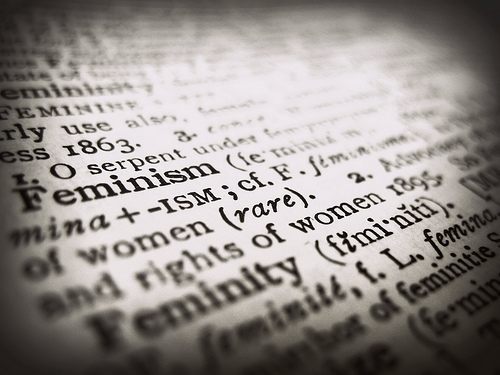A group of Twitter feminists have decided that they are offended by the very language they speak, venting their frustration at the Oxford English Dictionary, which appears to be caving to their demands.
The bossy group rabidly nagged the dictionary over its definitions and descriptions of ‘bossy’, ‘rabid’ and ‘nag’, in what has promptly been dubbed “Dictionarygate”.
Amazingly, the publisher — who supplies Google with its definitions — has since agreed to review the English language following the feminist Twitter onslaught.
https://twitter.com/OmanReagan/status/690919486405218304
It started on Sunday night, when Canadian anthropologist Michael Oman-Reagan attacked Oxford University Press for using “gendered examples” and “reinforcing stereotypes” in the Oxford English Dictionary.
The dictionary, as it happens, contains the common and widely used examples “rabid feminist” and “nagging wife” for the adjective and verb respectively.
“Reinforcing stereotype of ‘a nagging wife’ doesn’t merely reflect use, it actively reproduces sexism”, nagged Mr. Oman-Reagan.
He also took aim at other “explicitly sexist” examples such as “bossy” (“a bossy, meddling woman”), “psyche” (“I will never really fathom the female psyche”), “shrill”, (“the rising shrill of women’s voices”) and “grating” (“her high, grating voice”).
“[S]exism in language is an offensive reminder of the way the culture sees women” he tweeted, arguing: “Shouldn’t the usage examples in this dictionary reflect that understanding of sexism in language?”
Initially, the Oxford Dictionaries Twitter account gave as good as it received.
“If only there were a word to describe how strongly you felt about feminism…” it replied, explaining: “Our point is that ‘rabid’ isn’t necessarily a negative adjective, and that example sentence needn’t be negative either.”
But the army of online feminists was already mustering, and a barrage of offended tweets and language-policing descended Oxford Dictionaries.
‘Rabid’ rocketed to the top of the trending words list on the Oxford Dictionaries website, prompting the publisher to apologise for its “flippant” tone and promise to “review the primary example sentence used for ‘rabid’”.
The very next day they emerge with their tail between their legs, releasing the following statement.
“We apologise for the offence that these comments caused. The example sentences we use are taken from a huge variety of different sources and do not represent the views or opinions of Oxford University Press.
“That said, we are now reviewing the example sentence for ‘rabid’ to ensure that it reflects current usage.” Other examples raised by Mr. Oman-Reagan will also be reviewed.
As of Tuesday night, the example of a “rabid” feminist still exists, and the phrase has dropped down the Oxford Dictionaries search list, replaced by “revenant” after the new Leonardo di Caprio film, and “Holocaust” as Britain marks Holocaust Memorial Day on Wednesday.


COMMENTS
Please let us know if you're having issues with commenting.